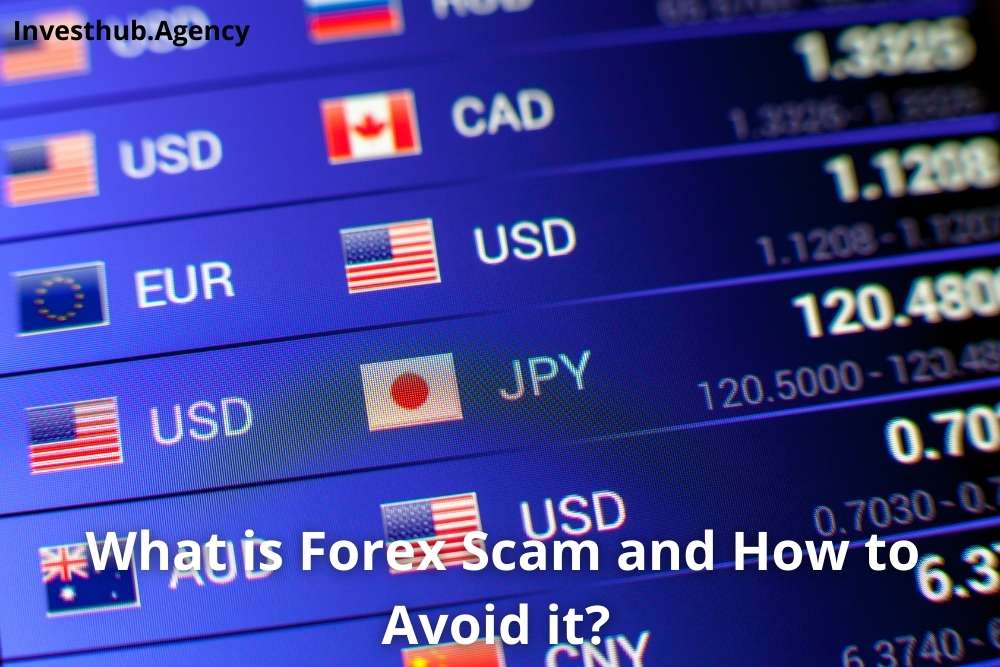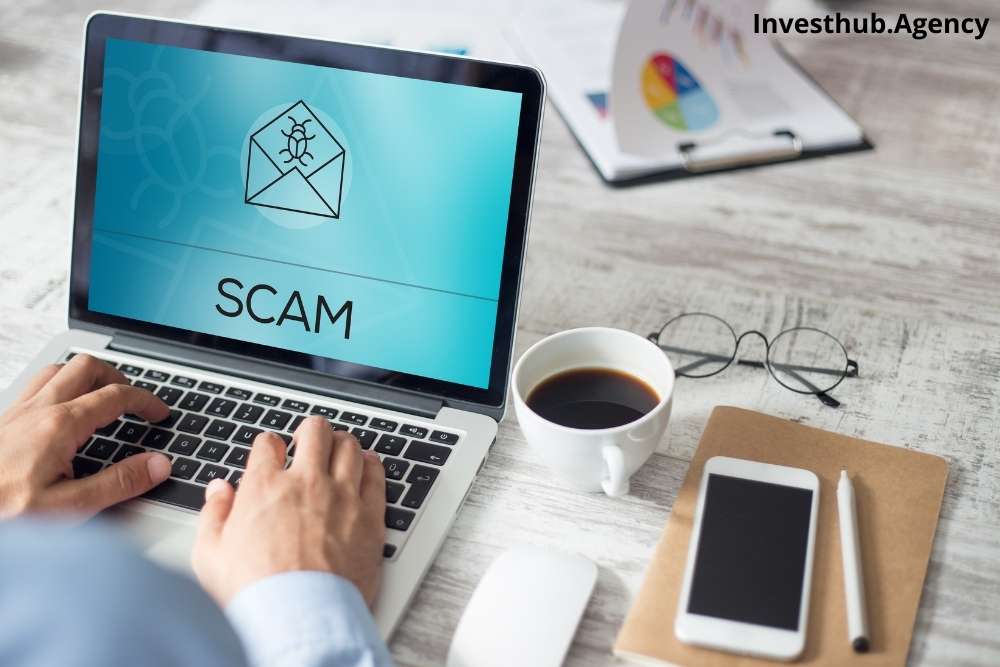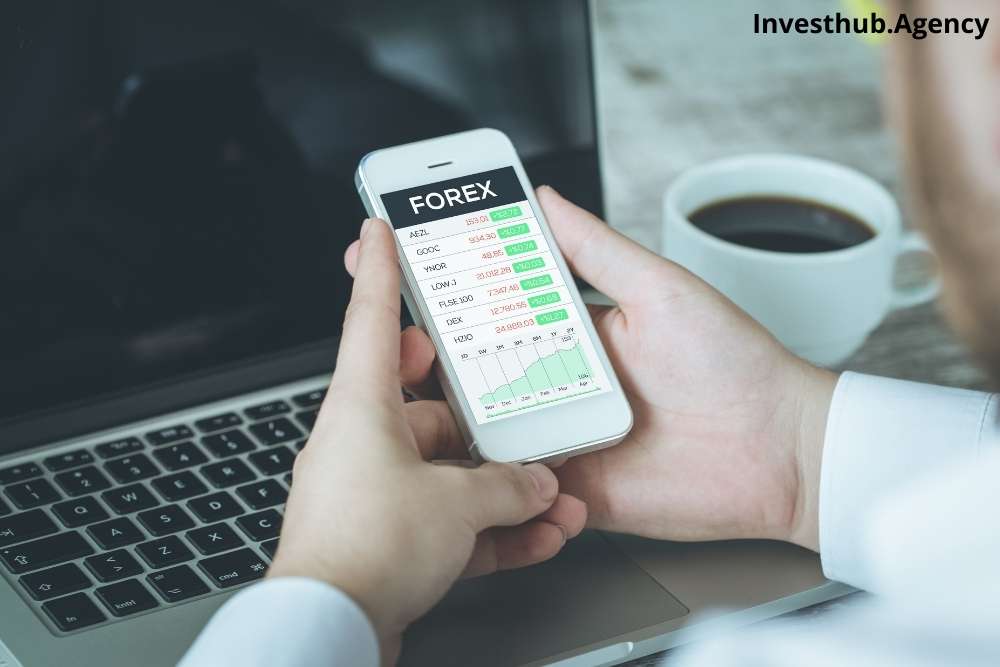Forex trading is all about purchasing and selling foreign currency pairs based on the exchange rate. However, as the exchange rate is variable, trading Forex can be quite riskier.
Another thing that haunts the traders is Forex scams, which usually lure traders by promising large returns on their orders with little or no risk.
Scammers use a variety of ways to dupe investors, from posting ads on social media to creating false websites.
With its expanding popularity, there has been an increase in Forex frauds. So before you start trading, it’s critical to understand how to avoid Forex trading Scams and what types of scams do traders always fall for?
Keep reading this article till the end to know more about:
- What is Forex Trading Scam?
- What are the types of Forex Scams?
- How to Avoid Forex Trading Scam?
So, let’s start this interesting topic without wasting a minute!
What is Forex Trading Scam?
The forex market is quite a popular marketplace for traders, but it is also a good opportunity for fraudsters.
Because currency values are continuously changing, frauds are extremely common in this industry.
The first advice we can give you to avoid Forex scams is to educate yourself about the basics of Forex trading. Then, you can read our other articles related to Forex trading to clear your concept about the topic.
Now, move back to the topic – What is Forex Trading Scam? When scammers/fraudsters dupe traders into investing in fake foreign currency schemes, it is said to be a Forex scam.
They frequently advertise once-in-a-lifetime investment opportunities where traders may make large profits in a short period of time.
Scammers often flee away after receiving payments, leaving investors disappointed.
There are several Forex scams, but they all have one thing in common: to steal your money. Unauthorized trading, Ponzi schemes, and outright theft are all examples of these frauds.
What are the Types of Forex Scams?
With such a high trade volume and lack of decentralized supervisory authority, individual traders are at the forefront of falling victim to a Forex scam.
There are several types of Forex frauds that you should be aware of if you decide to trade. Let’s briefly discuss all of them!
Unauthorized Trades:
Unauthorized trades occur when someone, without your consent, takes control of your trading account and begins making trades.
Scammers attempt to obtain access to your Forex account by requesting your login information, generally posing a difficulty with the withdrawal procedure.
For instance, Forex fraudsters may send you an email claiming that they are unable to process your withdrawal due to an issue with their bank.
They request that you register a new Forex account with them using your email address so that they may effectively transfer and withdraw your funds.
Once the fraudster obtains your login details, they may easily take over your account and flee away with your hard-earned money.
Phishing:
Phishing is when traders get a fake email or text message that appears to be from a trusted source – such as your bank or broker – but is really from a fraudster.
The message will invite you to click on a link or submit your personal information that will be used to steal your funds.
If you receive an email from your Forex broker informing you of a great deal, yet the link brings you to a Forex broker login page where you can’t sign in with your password, it’s most likely phishing.
These emails often appear to be real, with the perfect official format, and even originate from an email address that seems valid at first glance.
Forex Robots Scams:
Trading robots for Forex are quite common among traders. But in reality, Trading bots should always be avoided.
There are many types of scams involving Forex robots, but the basis is usually the same: it claims to produce consistent successful trades (regardless of market circumstances) without your involvement.
The Forex robot will either trade for you automatically or will provide you with trading signals. In both cases, this sort of fraud is a waste of money when it comes to Forex trading.
Forex robots cannot represent themselves as Forex trading software as they do not match any of the regulatory standards.
Forex trading robots are nothing more than rebranded Forex signal providers.
Scam Brokers:
When a Forex broker’s primary goal is to flee away with your hard-earned money, and they don’t care whether you’re making profits or losses.
SCAM brokers may fail to provide you with the necessary tools to trade successfully, provide poor rewards, or steal your earnings by alleging “server issues” or other reasons.
So, choosing a reliable and trustworthy Forex broker such as ABInvesting is a must-to follow step before starting Forex trading.
Being regulated by the Mauritius Financial Services Commission Authority (FSC), ABInvesting is a well-regulated broker, offering a best-in-class trading experience.
Signal Seller Scam:
Companies known as signal sellers provide recommendations on the optimum times to trade currencies based on their market analysis.
Investors are subject to pay a fee for this information.
This type of scam involves a company that charges investors without providing any advice or trading specifics then flees away with their money.
They often claim that their data would ensure profitable trades and large profits.
Pyramid Scheme Scam:
Forex pyramid scams attract new members into investing clubs that claim to provide them data to assist them in making profitable Forex trading.
Members of these programs are subject to pay a fee, and they are urged to recruit other individuals to join so that they can earn a commission.
The money earned in this fraud comes from membership fees rather than genuine forex trading gains.
It’s kind of like a chain system. When membership begins to dwindle, the scheme’s leaders generally shut it down and run away with all the money.
Multi-level Marketing Scams:
The rise of multi-level marketing (MLM) enterprises focused on Forex trading has helped maintain the Forex market’s popularity.
Members of several well-known Forex multi-level marketing companies must pay a monthly fee in return for daily trading signals and forex training resources.
Members are then rewarded with tiers of commissions if they add additional individuals. The focus of these businesses is less on trade and more on attracting new members.
The truth is that trading in the Forex market does not need you to join a company or even pay a membership fee.
How to Avoid Forex Trading Scam?
As mentioned above, there are several types of Forex frauds ranging from broker scams to signal seller scams.
However, understanding what to look for might help you avoid these frauds and keep your money secure.
Here are a few ways to avoid Forex Trading Scams:
Look for Broker’s Regulations and Licensing:
As no single financial regulatory body governs and controls the Forex market, there’s a higher chance of scams.
On the other hand, most Forex brokers are regulated and authorized by the government or a financial regulatory body like the Financial Industry Regulatory Authority (FINRA).
As a result, before you sign up, check that your Forex broker is fully regulated and registered.
Don’t Fall for Fake Ads:
Have you ever seen an ad for Forex trading courses and thought about how it could be that simple to make a huge amount of money?
So, finding out whether Forex signals or Forex courses are genuine is challenging.
Unauthorized Forex trading, rogue investment advisers posing as Forex brokers, and Forex trading robot frauds are all should be avoided.
So, before you start, it is advisable to check whether these ads are fake or genuine. In greed for making good money, you may end up losing your hard-earned money.
Research:
Forex management funds promise to provide investors with a solution to profit from Forex trading while avoiding the risk of losing hard-earned money due to Forex scams.
While there are both legal and scam Forex management funds, you should thoroughly investigate any organization you want to engage with.
Far too frequently, Forex fund managers lack the necessary competence to properly handle your money.
If you do decide to deal with a Forex management fund, make sure you do your research first. Check that all licenses and registrations are current and valid with the right organizations.
Get Yourself Educated about Forex Trading:
Forex traders who want to make money, like those who want to make money in any other kind of trading, should educate themselves first.
It may seem easy to earn money through Forex trading, but the fact is that it is dangerous, and it’s critical to educate yourself before getting involved.
Many Forex brokerage firms only allow clients with a high level of education to use their trading systems.
This is why you should only consider Forex brokers who offer educational materials to their clients and ensure that they are well-informed about currency trading in the Forex market.
Verify Broker’s Claims:
This is a tricky one to verify. In most cases, depending on the facts presented to you in a slick marketing email or on the individual’s website will not provide you with the complete picture.
To find out what other people think about the broker, robot, or individual, you’ll need to conduct some detective work, which may take some time and effort.
It takes effort to sift through the reviews of individuals who lost money due to the broker. Be wary of Forex brokers that make big claims but give no supporting proof.
Conclusion:
Trading the Forex is a good way of earning money if done in the right way. As the market is popular for its high liquidity and volume, it is also not less popular among scammers.
Unfortunately, Forex trading is a hub for scammers that attempt to take advantage of novice and unskilled traders.
Don’t fall for fake claims if you want to protect yourself and your money from forex trading scams. You won’t become a billionaire overnight without education, experience, and losses.
Avoiding possible fraud requires checking key regulatory authorities for registration and membership, finding real customer reviews, and reading all the small details before investing.
To avoid Forex scams related to brokers, choose only registered brokers and individuals wherever possible.
FAQ:
Is it Possible to be Scammed by Forex Trading?
Yes, it is possible to get scammed in Forex trading, but due to strict regulations, it is less common these days.
When forex brokers provide huge bid-ask spreads on particular currency pairings, making it more difficult to profit from trades, this is also considered a scam. So, any offshore, unregulated broker should be avoided.
How to Avoid Forex Trading Scams?
Before you enter the markets, the best way to prevent being a victim and being scammed is to have a good Forex trading education.
Forex scammers often dupe traders by offering them higher returns promises and then flee away with all their money.
Is it Possible to Become Rich by Forex Trading?
If you’re an expert or seasoned currency trader, Forex trading may make you rich.
However, rather than being an easy route to riches, forex trading may be a rocky road to massive losses and challenging for the typical retail trader.
Is it Possible to Get my Money Back after a Forex Scam?
If the broker who scammed you is regulated, you may be able to recover part of your funds. You only need to go to the broker’s website and look up whose regulatory entity oversees it.
Following this, all you have to do is contact the regulating body. But it might be difficult if your broker is not regulated by any global regulatory body.
What to do next after a Forex Scam?
If you have fallen victim to a Forex scam, you should get legal advice as quickly as possible. Then, your case will be handled more effectively by legal specialists who are familiar with the financial industry.
In addition, you can report the fraud to the global financial authorities (such as CySEC or FCA) so that they can take strict action.


